Lezyne Macro Drive 1300XXL review
A quality option that offers up a greater battery life than the competition and produces a wide beam that helps keep your peripheral vision informed
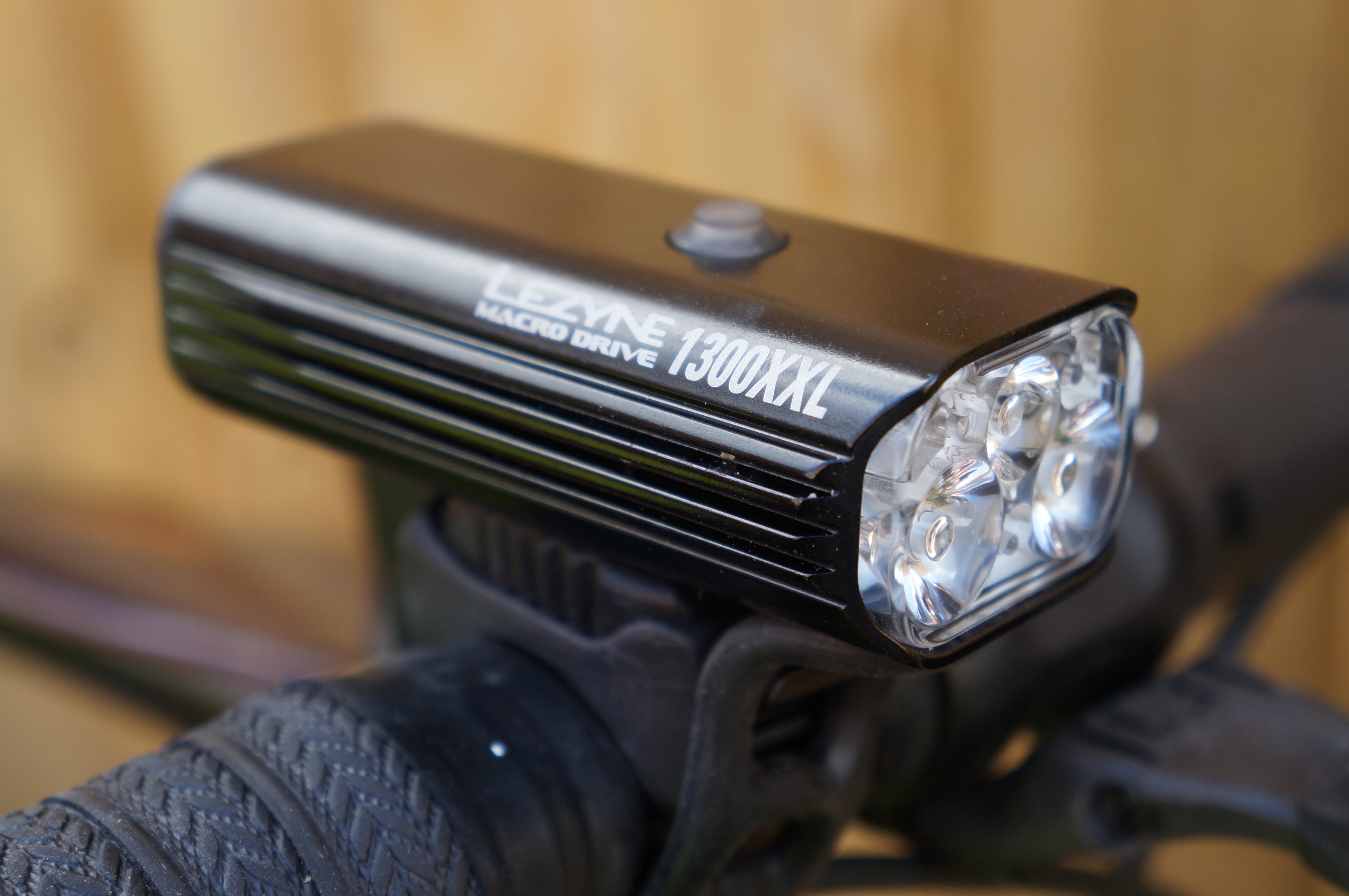
Lezyne's Macro Drive 1300XXL offers up a wide beam, with an additional central LED which puts a focus on the situation when needed. In terms of build quality and features, it's impressive - the overall package was only surpassed by Exposure's Strada MK10, but it's also less than a third of the price.
-
+
Solid construction
-
+
Reliable mount
-
+
Wide beam
-
-
Takes up quite a bit of space on handlebars
You can trust Cycling Weekly.

Lezyne has been producing LED bike lights for close to a decade now. I was actually able to test one of the very first incarnations. I wasn’t impressed, the light was fairly heavy and its mount insufficient, the result being that I sent it flying off into a ditch somewhere. But that was - if my memory serves me correctly - seven years ago now, and Lezyne’s lights range has come on in leaps and bounds, to the point that I’d consider them one of the best bike light options on the market.
The Macro Drive 1300XXL emitted a notably more ‘floodlit’ beam when compared to the competition, and comes with a rubber mount that ensures it doesn’t budge.
We tested this light as part of a four-up group test, alongside the Knog PWR Trail 1100, Exposure Strada MK10, and Blackburn Dayblazer 1500.
The Macro Drive 1300XX: construction
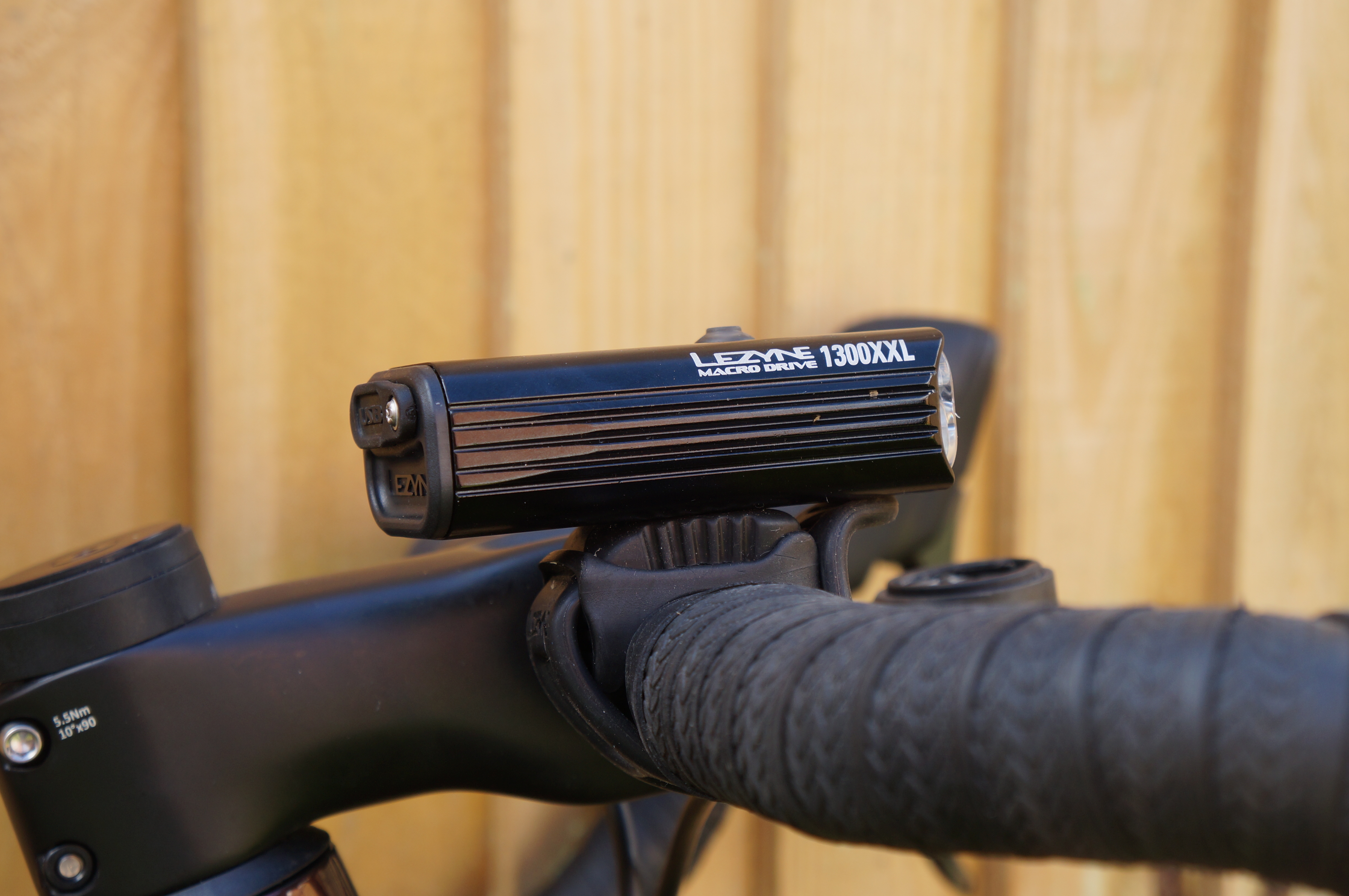
The Macro Drive1300 XXL, as its name suggests, puts out a maximum of a claimed 1300 lumens. Lezyne calls this the ‘Overdrive’ mode, and the brand has used its LED placement to create a beam that is much wider than most. However, a third LED in the centre provides a spotlight if you need it, and angling the light downwards will give a more focused view of the road.
The body is constructed from hard-wearing CNCed aluminium, and this contributes towards the 226g weight; Lezyne claims 208g, I can only assume that's minus the mount. Whilst not light, the heft does make for a light that feels robust. The body is adorned with ‘cooling fins’ and Lezyne has also built in a feature that ensures the light changes into a lower mode if it overheats, typically if you’re stood still for a while.
Lezyne offers seven modes: five different brightnesses, from 1300 lumens to 15, and two flashing modes. You can choose to use the 'Race' mode, where you can cycle between the Overdrive (1300 lumen) and Economy (150 lumen) modes. To activate this setting, press and hold the start button for five seconds; it is something Lezyne says can cause confusion if users activate the mode accidentally and then find themselves missing the other five steps. To return to the normal set-up, press and hold for five seconds again.
Whilst the 1300 lumen option lasts a claimed 2.5 hours, the 15-lumen mode will burn for a claimed 148 hours, but it is a minimal output, and I can’t see many riders opting for the Macro Drive putting this to good use.
The battery indicator light stays on throughout the ride, and is green when you have 50-100% battery, orange at 10-50%, red at sub 10% and flashing red when you have less than 5% juice and need to get home.
Lezyne’s range uses rubber straps to mount the lights to the handlebars, and all of its lights charge via a micro USB.
The Macro Drive XXL1300: the ride
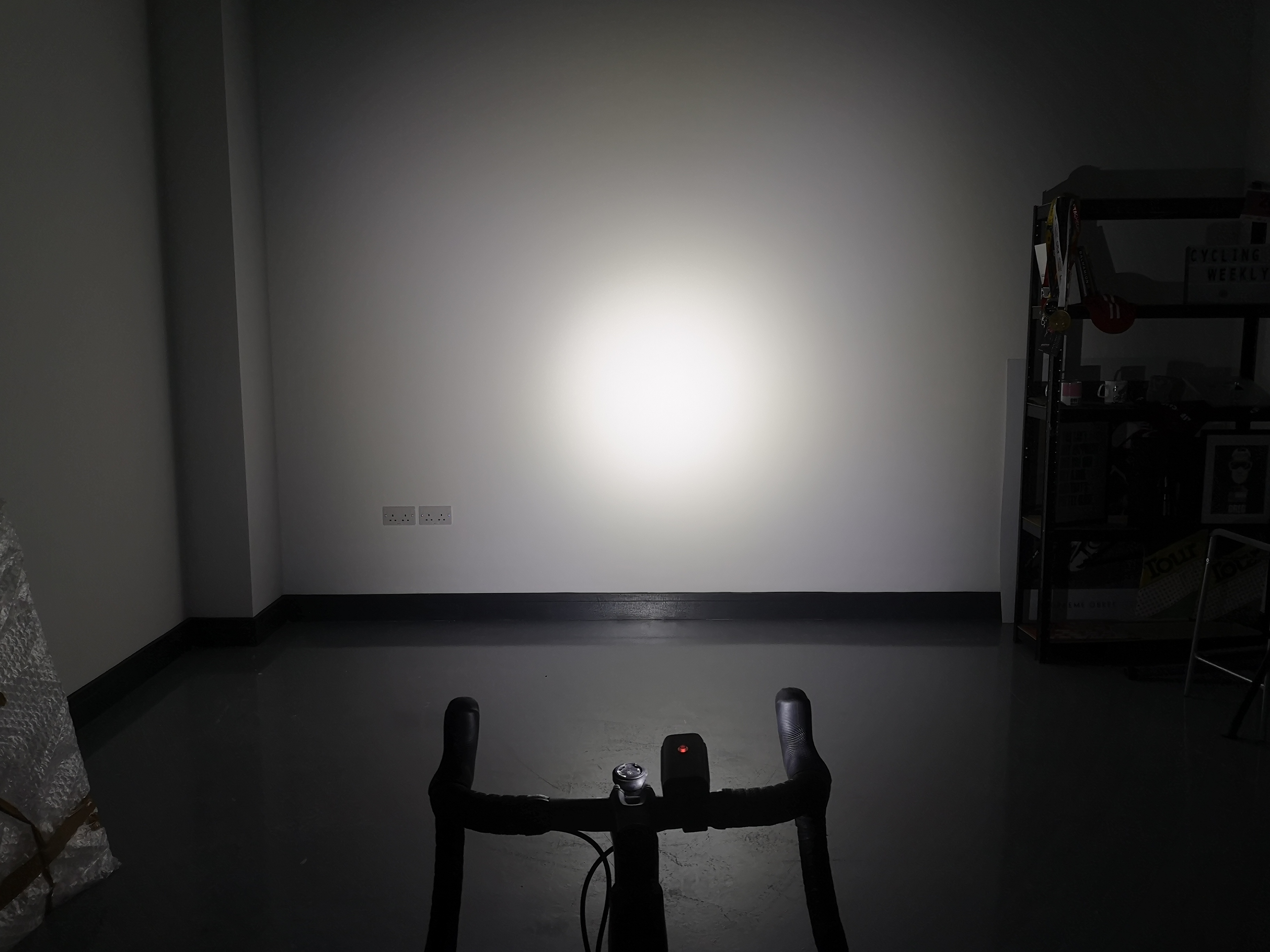
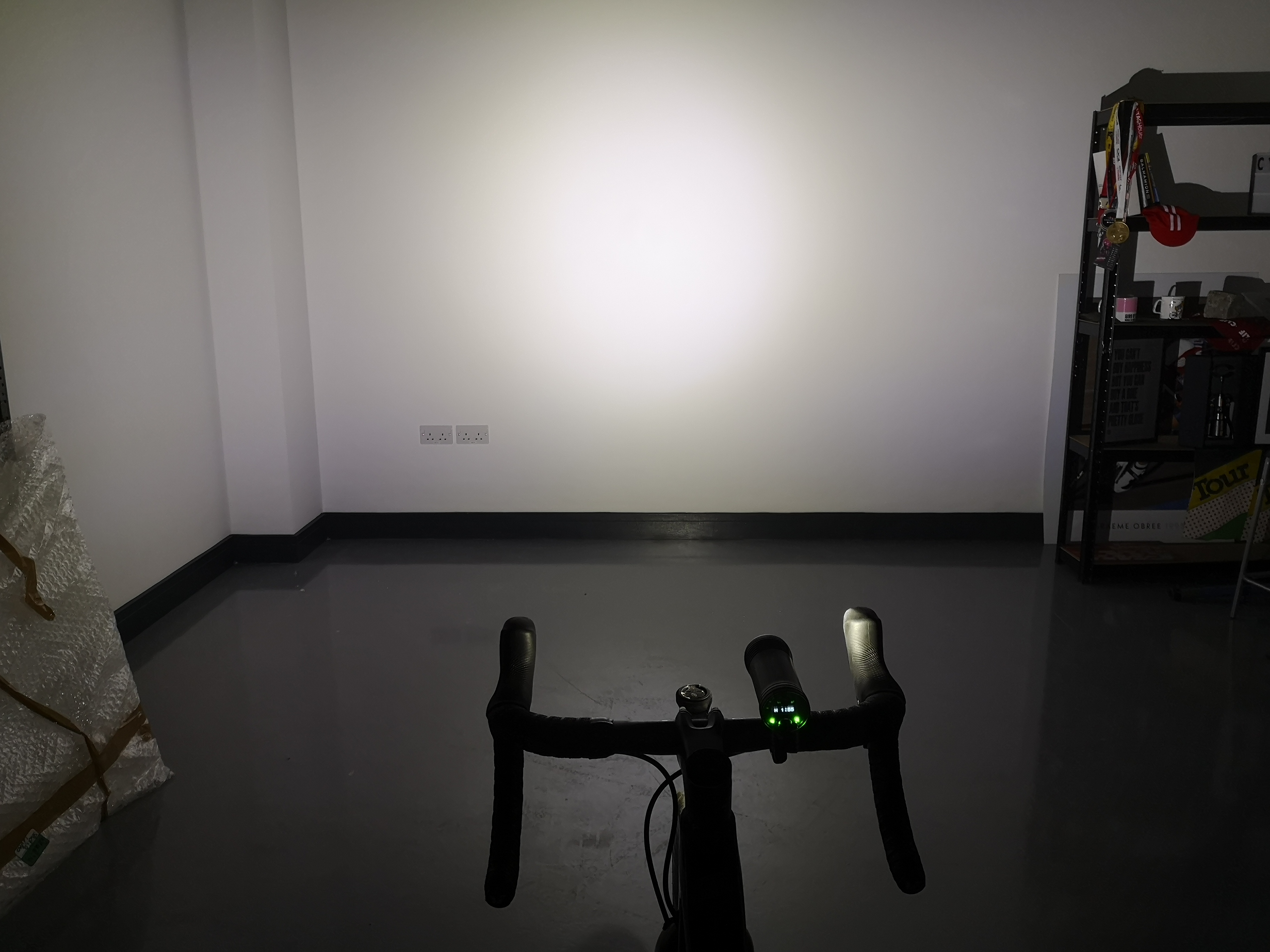
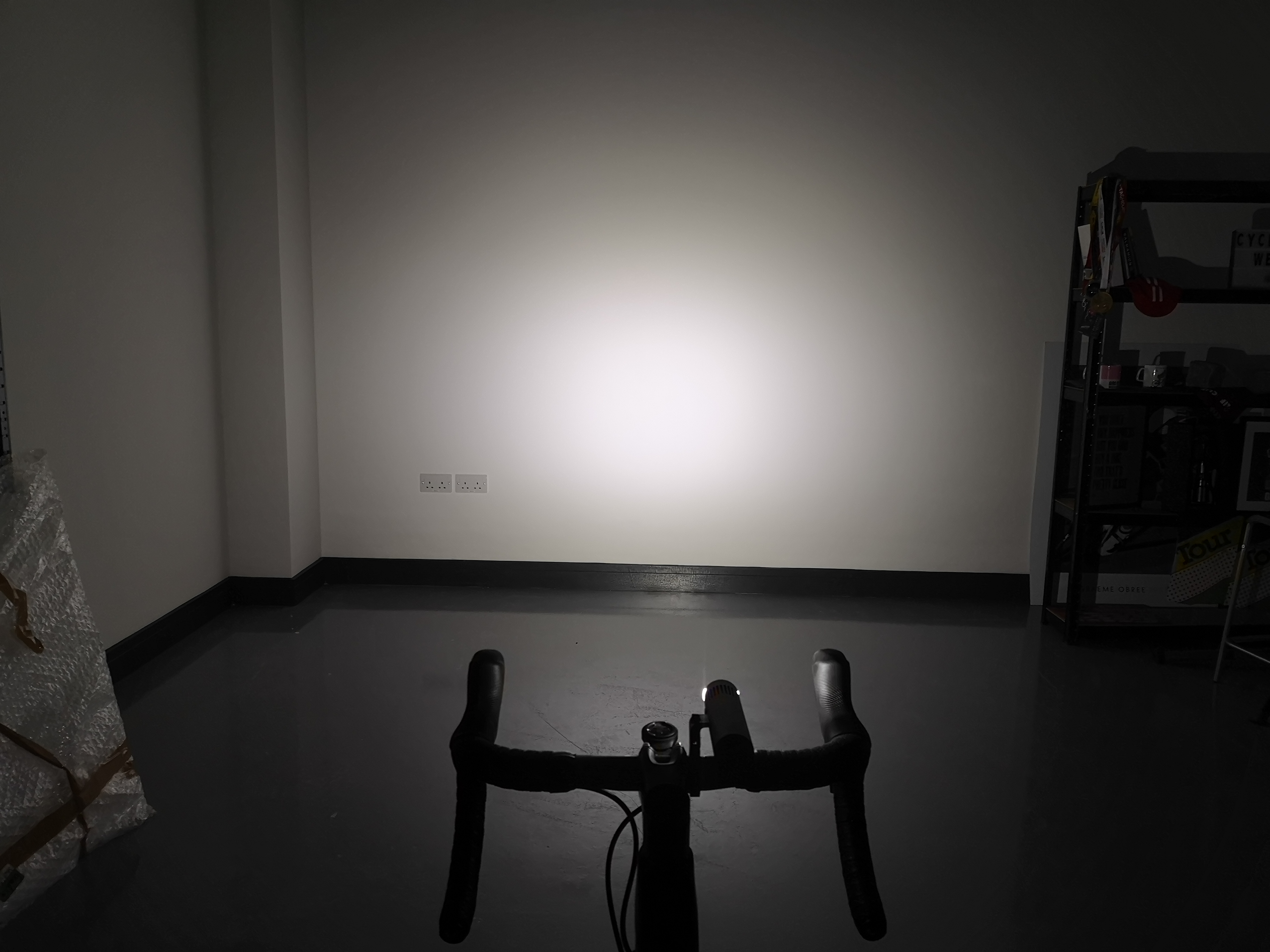
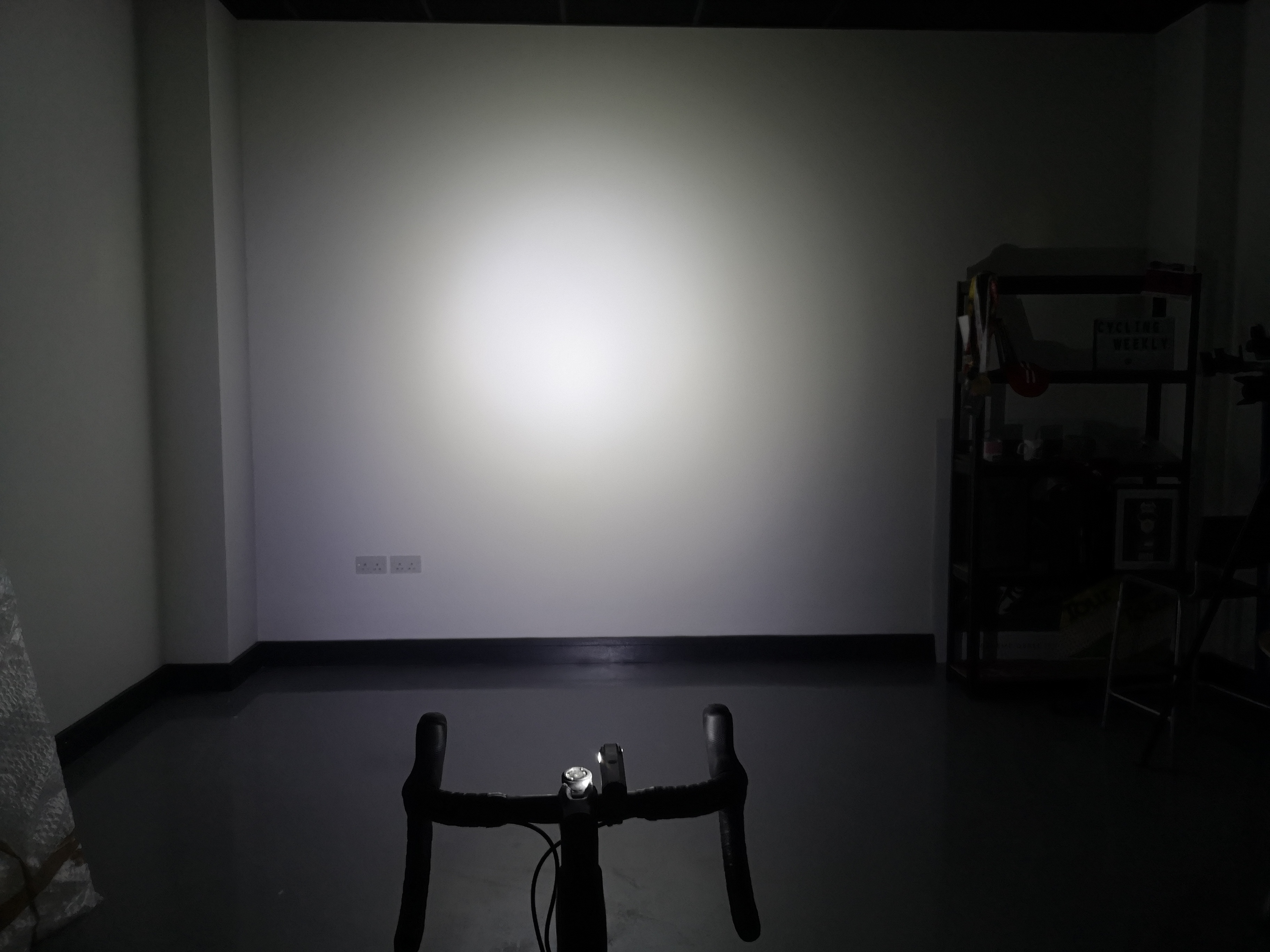
Out the box, the Macro Drive 1300XXL is extremely easy to fit and get going with. The rubber strap snapped onto my handlebar with no issues, and it swivels on the mount too. I did find that the USB port cover didn’t slot into place easily, I had to push it quite hard and wiggle it into place, however, this does mean it’s unlikely to eject itself and let water and grit in.
The light was the second heaviest on test, at 226g, with the 228g Exposure being the heaviest and the Blackburn Dayblazer at 143g the lightest. It’s also relatively bulky, taking up a reasonable amount of real estate on the handlebar, though it didn’t get in my way at all.
The Overdrive beam is very wide, much more so than the Dayblazer I also tested. This gave me an excellent field of vision, and if I wanted a more focused view, I could just angle the light downwards to make more use of the central LED.
Activating and de-activating the Race mode takes a little bit of getting used to, but once I had the process nailed, it was simple to use. The 150 lumen Economy mode which is paired with the 1300 lumen Overdrive setting represents quite a big step down, however, I used this a little like turning the full-beam mode off on my car headlights, dipping into Economy for oncoming vehicles. If you wanted to swap between the Overdrive and something like the 800-lumen setting, I'd recommend steering away from the Race setting.
The claimed battery life is two hours 30 minutes. Charging the light to full and leaving it on, I found it lasted just over two hours 20 minutes before switching to a lower mode, with a red flashing light. A second test yielded a solid red light after two hours 20 minutes - indicating I still had between 5 and 10% left. The Blackburn Dayblazer had a claimed life of two hours, but it actually lasted over two hours 20 minutes which was impressive. Bear in mind that there are many factors that impact burn time, heat being a major factor.
The Lezyne's battery indicator light was a plus for me, this stays on throughout the ride, as opposed to displaying only when you change modes.
At £90/$99.99, Lezyne’s offering provides a reassuringly wide beam, secure mount and long battery life, adding up to a high-scoring package that we’d thoroughly recommend.
| Light | Leyne MacroDrive XXL1300 | Knog PRW Trail 1100 | Exposure Strada MK10 | Blackburn Dayblazer 1500 |
| Lumens | 1300 | 1100 | 1500 | 1500 |
| Weight | 226g (claimed 208g) | 220g | 228g (claimed 230g) | 143g (claimed 140g) |
| Battery life (claimed) | 2.5hrs | 1.7hrs | 2hrs | 2hrs (lasted 2hrs+) |
| Modes | 7 | 6 | 20 | 5 |
| Mount | Rubber | Clamp | Alloy bracket | Rubber |
| RRP | £90/$99.99 | £119.99 | £300/$411 | £89.99/$95 |

Thank you for reading 20 articles this month* Join now for unlimited access
Enjoy your first month for just £1 / $1 / €1
*Read 5 free articles per month without a subscription

Join now for unlimited access
Try first month for just £1 / $1 / €1
Get The Leadout Newsletter
The latest race content, interviews, features, reviews and expert buying guides, direct to your inbox!
Michelle Arthurs-Brennan the Editor of Cycling Weekly website. An NCTJ qualified traditional journalist by trade, Michelle began her career working for local newspapers. She's worked within the cycling industry since 2012, and joined the Cycling Weekly team in 2017, having previously been Editor at Total Women's Cycling. Prior to welcoming her first daughter in 2022, Michelle raced on the road, track, and in time trials, and still rides as much as she can - albeit a fair proportion indoors, for now.
Michelle is on maternity leave from April 2025 until spring 2026.
-
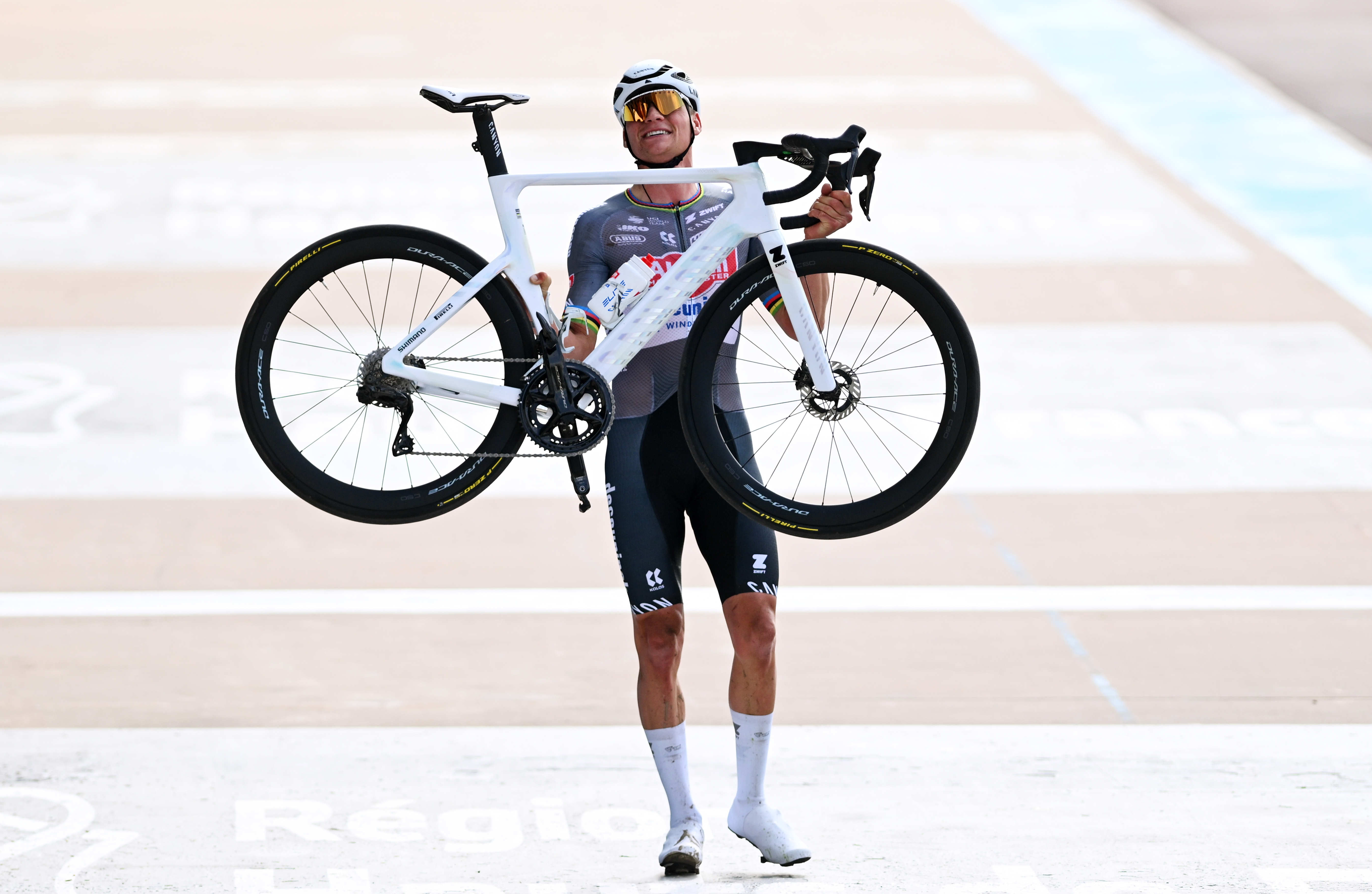 Mathieu van der Poel secures Paris-Roubaix hat-trick after epic duel with Tadej Pogačar
Mathieu van der Poel secures Paris-Roubaix hat-trick after epic duel with Tadej PogačarDutchman takes his third win in a row after Pogačar crashes on the cobbles, while Mads Pedersen finishes third
By Peter Cossins Published
-
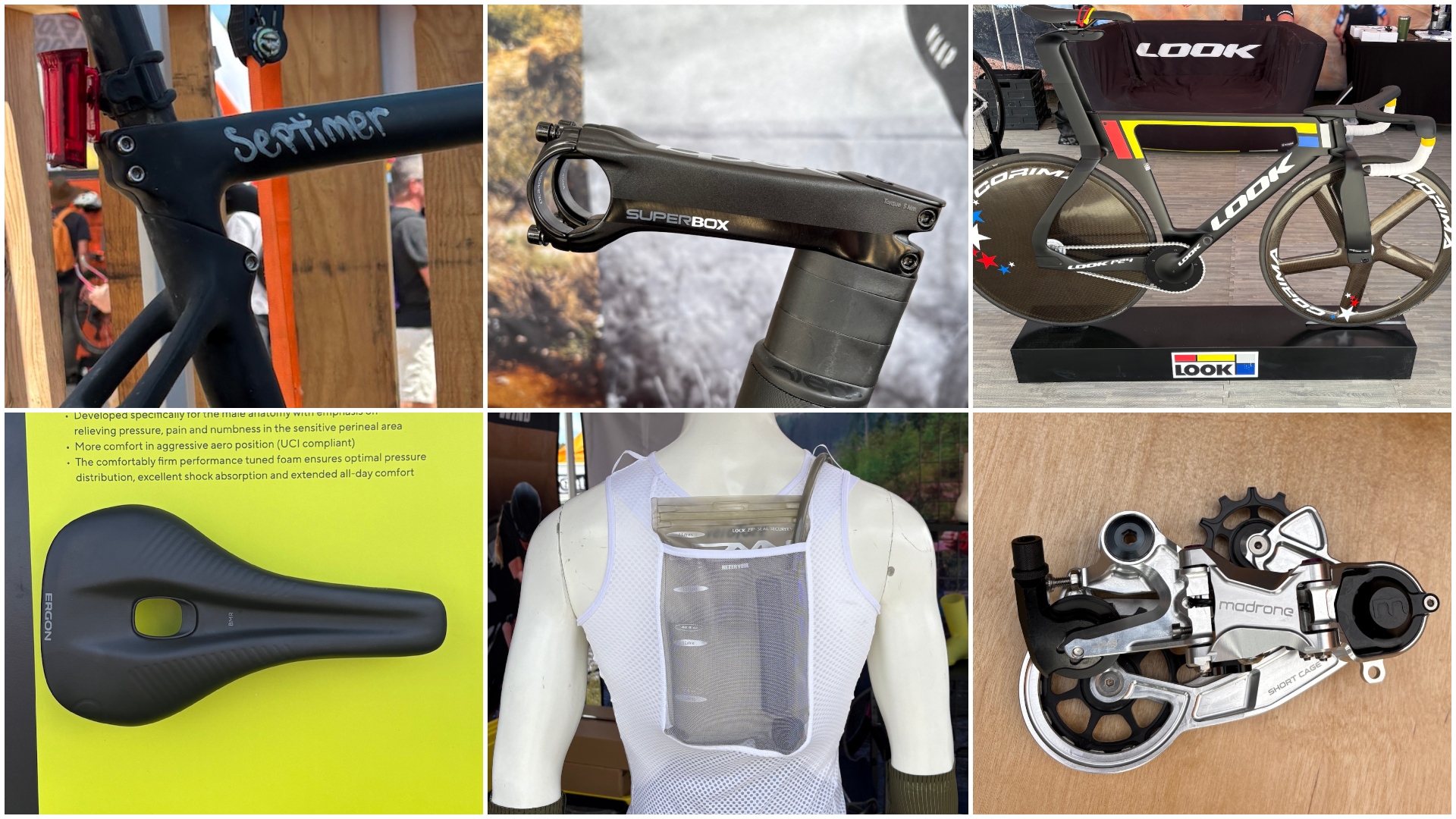 The Sea Otter Classic: sights and sounds from the biggest bike gathering in North America - Part 1
The Sea Otter Classic: sights and sounds from the biggest bike gathering in North America - Part 1Odds and ends that run the gamut, from a $13,000 frameset to armoured kit and new hydro-vests
By Tyler Boucher Published
-
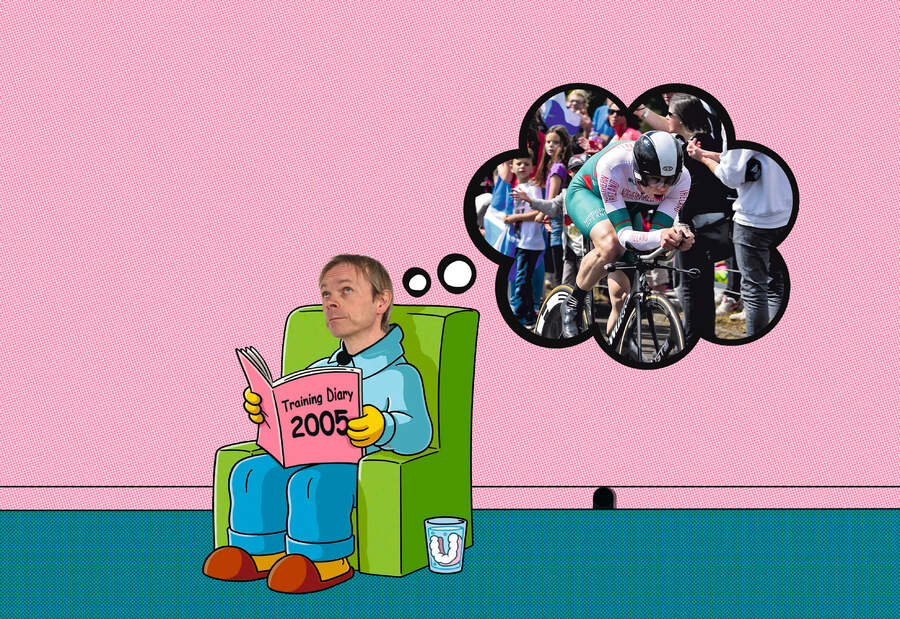 The thing that bothers me most when I look back at old school training is that right now we’re doing something equivalently misguided
The thing that bothers me most when I look back at old school training is that right now we’re doing something equivalently misguidedOur columnist's old training diaries reveal old-school levels of lunacy
By Michael Hutchinson Published